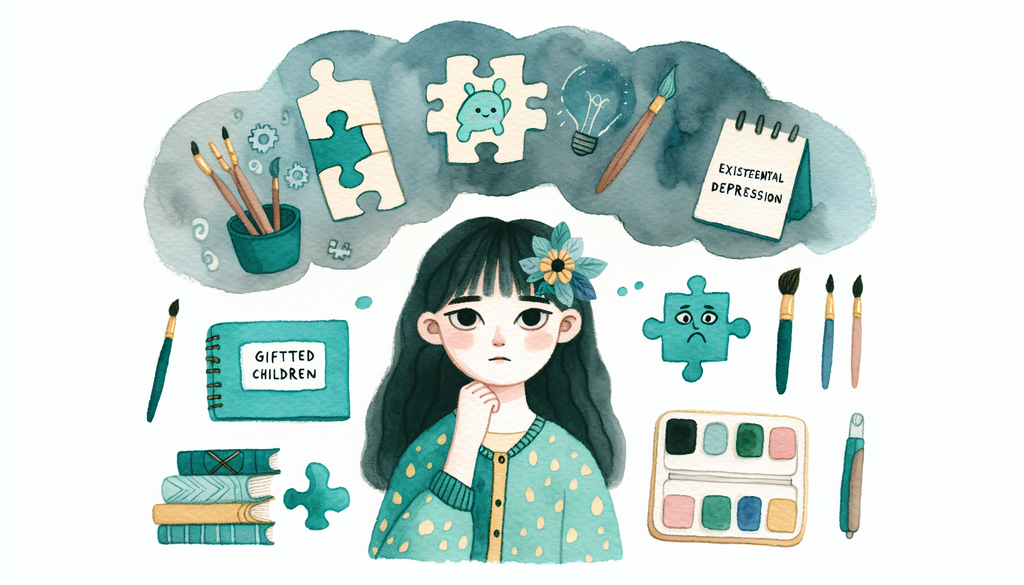Gifted Children and Existential Depression: Understanding and Support

Discovering that your child is gifted can bring a rush of pride and excitement. However, giftedness comes with its own set of challenges, one of which is often overlooked - existential depression. Understanding existential depression in gifted children is crucial. Therefore, this post will explore this topic and provide actionable strategies for parents and educators to offer support and guidance.
What is Existential Depression?
Existential depression is a type of psychological distress that stems from contemplations about life, death, freedom, isolation, and meaninglessness. Particularly, gifted children tend to show a greater depth of sensitivity and understanding than their peers, leading them to grapple with these existential concerns at an early age.
Why are Gifted Children Susceptible?
Gifted children are typically characterized by exceptional cognitive abilities, heightened creativity, and intense emotional experiences. Their advanced intellectual capacity often leads them to reflect deeply on existential themes which are generally complex and abstract. This deep contemplation, coupled with a sense of being different from others, can result in feelings of isolation and depression.
Spotting Existential Depression in Gifted Children
Existential depression may manifest differently among gifted children. Some common signs include increased withdrawal, extreme sadness, disinterest in activities they once enjoyed, constant worry about death or the meaninglessness of life, difficulty sleeping, changes in eating habits, or decline in school performance. Keep in mind, these can also be symptoms of other types of depression or anxiety, so consulting with a mental health professional is advisable when these signs appear.
Strategies to Support Your Gifted Child
Here are a few strategies that could help parents and educators support gifted children dealing with existential depression:
-
Open Dialogue: Regularly engage in open and honest bidirectional communication about their thoughts, fears, and aspirations. Understand their existential concerns and encourage them to express their feelings. Our post on nurturing leadership in gifted children cites communication as an essential skill to develop in these youngsters.
-
Gifted Peer Interaction: Encourage social interactions with intellectual peers. Our guide on helping your child build friendships offers more on this topic.
-
Professional Help: If the symptoms of the existential depression are severe and persistent, seek help from a professional having experience with gifted individuals. Our piece on navigating the therapeutic journey may offer some help in this concern.
-
Mindfulness Practices: Mindfulness exercises like meditation can be beneficial for managing stress and anxiety, also fitting for children dealing with existential depression. Our blog on mindfulness and meditation for children with special needs shares the relevance of these practices for children with exceptional needs.
-
Affirm Their Feelings: Last but not least, validate their feelings and assure them that it’s okay to grapple with complex emotions and thoughts. We dive deeper into the importance of emotional validation in our post: Supporting Siblings of Children with Autism.
Wrapping Up
While giftedness certainly has its privileges, it isn’t without its challenges. Identifying and addressing existential depression timely is of utmost importance. Equip yourself with the tools you need to empower your child.
Remember, it’s crucial to educate yourself, be patient and understanding, and not hesitate to seek professional help when necessary. For more insights into the world of gifted education, you might find our discussion on the gender gap in gifted education interesting.
Remember, every child is unique, and their emotional well-being is just as important as their intellectual development. Continue to follow our blog as we support you on this rewarding journey.